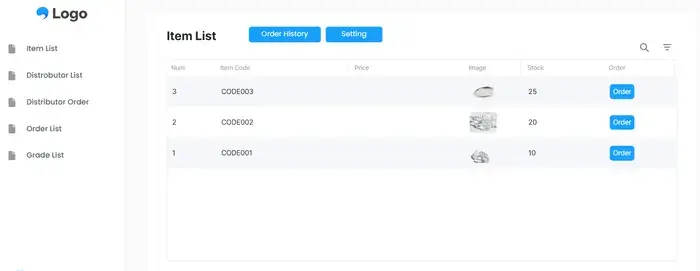Effective Distributor Management: A Strategic Guide for Manufacturers
Waveon

Why Distributor Management is Essential
Distributor management is a crucial element for businesses looking to expand their reach and drive sales growth in competitive markets.
Managing relationships with distributors, crafting effective operational strategies, and ensuring continuous alignment with business goals are critical components of successful distribution management.
This guide delves into key strategies, real-world examples, and best practices for managing distributor relationships effectively.
The Role of Distributors in Business Success
Distributors play a pivotal role in bridging the gap between manufacturers and consumers, acting as intermediaries who manage the flow of products from production to end-users.
Their networks and understanding of local markets allow manufacturers to extend their reach and optimize distribution channels. Distributors are often tasked with warehousing, logistics, and sales, and their success directly impacts the manufacturer’s market penetration and revenue.
Market Reach Expansion:
Distributors have deep knowledge of local markets and consumer behavior, which allows companies to quickly scale their products to new regions or demographics.
This eliminates the need for manufacturers to directly handle all aspects of distribution and marketing in every market, enabling faster market penetration.
Cost-Effectiveness:
By utilizing the existing infrastructure and resources of distributors, companies can save on costs related to logistics, warehousing, and local marketing efforts.
Distributors often already have an established network, reducing the need for significant upfront investment.
Expertise and Local Knowledge:
Distributors have on-the-ground experience, offering valuable insights into customer preferences, competitive trends, and regional challenges.
This local intelligence is invaluable when tailoring marketing strategies, adjusting product offerings, or anticipating market shifts.
Improved Focus:
By outsourcing distribution to a trusted partner, companies can focus their resources and energy on product development, innovation, and other core business functions, while leaving the complexities of distribution to the experts.
Customer Service and Support:
Distributors often handle customer service, ensuring that issues like product returns, repairs, and local promotions are efficiently managed. This enhances customer satisfaction and helps maintain brand loyalty.
Distributors are not just middlemen, they are strategic partners that can significantly contribute to a company’s growth, efficiency, and competitive advantage in the marketplace.
Distributor Management Strategies
Building Collaborative Relationships with Distributors
A strong, collaborative relationship with distributors is key to long-term success. Manufacturers need to view their distributors as partners rather than mere sales agents.
Open communication, shared objectives, and mutual trust are foundational to a productive partnership. Regular check-ins, joint strategy meetings, and aligning incentives can help both parties stay focused on common goals and increase operational efficiency.
Leveraging Data and Technology in Distributor Management
In today’s competitive landscape, data-driven strategies are essential for making informed decisions about distributor management.
Advanced analytics, customer insights, and real-time inventory management systems can help identify market trends and consumer preferences. Sharing this data with distributors allows for more accurate forecasting, optimized stock levels, and tailored marketing strategies.
One of the most effective tools in this space is the Distributor Management System (DMS), which provides an integrated platform to track distributor performance, manage supply chains, and facilitate smooth communication between parties.
By leveraging such systems, companies can ensure that their distribution channels are functioning efficiently and meeting market demands.

For example, Waveon’s distributor management solution offers features such as order and inventory management, pricing setup by distributor tiers, real-time order information updates, and automation functions, allowing for a more systematic management of complex operations.
🔷 Real-time Order and Inventory Updates: Orders are reflected in real-time, updating the order list and inventory.
🔷 Customized Pricing and Product Settings: Different prices and product lists can be set based on distributor tiers, allowing for a differentiated sales strategy.
🔷 Easy Ordering Process: Distributors can access the product list page and place orders directly.
🔷 Automation Features: Notifications are sent upon order receipt, and alerts are triggered when inventory reaches a specified level, minimizing repetitive tasks.
🔷 Cloud-based Web Service: Access from anywhere without the need to install software.
🔷 Quick Implementation and Flexible Customization: Faster deployment compared to traditional ERP systems, with the ability for flexible customization.
Providing Support and Training for Distributors
To maximize the effectiveness of their distributor networks, manufacturers must provide ongoing support and training. This includes educating distributors about product features, sales techniques, and customer service standards.
By offering resources like sales toolkits, product demonstrations, and technical support, manufacturers empower distributors to sell more effectively and represent the brand consistently.
Setting Clear Performance Metrics and KPIs
To evaluate distributor performance effectively, clear and measurable metrics are necessary. Key Performance Indicators (KPIs) such as sales volume, market penetration, customer satisfaction, and profitability should be established and tracked regularly. These metrics help identify areas for improvement and ensure alignment with overall business objectives.
Manufacturers can incentivize high-performing distributors with bonuses or tiered rewards, motivating them to strive for better results. Consistent performance reviews and feedback mechanisms also help maintain focus and foster healthy competition within the network.
Adapting to Market Changes and Challenges
The marketplace is constantly evolving, and companies must remain agile to adapt to changing consumer preferences, economic shifts, and technological advancements.
This includes adjusting marketing strategies, modifying product offerings, or pivoting to new distribution channels based on market needs.
Strengthen Your Distributor Network for Sustained Growth
Distributor management is not a one-time task but an ongoing process that requires strategic planning, clear communication, and adaptability.
By building strong relationships, utilizing technology and data, providing necessary training and support, and continuously monitoring performance, companies can ensure that their distributor networks remain competitive and efficient.
Ultimately, effective distributor management leads to better market reach, increased sales, and sustained growth for all parties involved.















